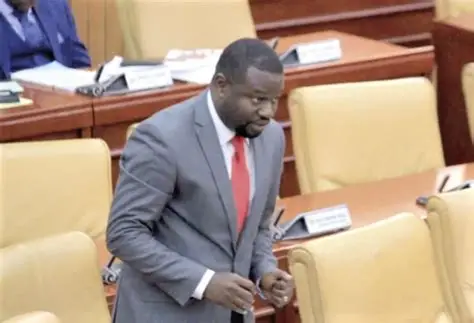Published
4 months agoon
By
Adubianews
Minority Chief Whip and Member of Parliament for Nsawam-Adoagyiri, Frank Annoh-Dompreh, has called for a bold and visionary national agenda to green Ghana’s cities, warning that rapid urban growth is pushing major urban areas toward crisis.
Speaking in Parliament on Tuesday, November 4, during a debate on the motion “Transforming Urban Ghana: Evidence-Based Solutions for Sustainable, Clean, and Resilient Cities,” the MP said Ghana is “at a crossroads” where true progress must now be measured by a balance between people and the environment.
“Our cities, once symbols of vitality and promise, are straining under the weight of their own success,” he cautioned. “Accra, Kumasi, Takoradi, and Tamale throb with energy and ambition, yet beneath this vitality lies a deepening crisis of congestion, pollution, and urban neglect.”
Citing alarming figures from the Ghana Statistical Service, Annoh-Dompreh revealed that over 56.7% of Ghanaians now live in urban areas, a number expected to surpass 60% by 2030. He also noted World Bank data showing that poor sanitation and pollution cost Ghana nearly 3% of GDP each year — a burden that undermines public health, productivity, and tourism.
He expressed concern over worsening air quality in Accra, stating that about 40% of the city’s PM2.5 emissions come from road transport. Without urgent intervention, he warned, Accra’s population could exceed 7 million by 2040, facing severe traffic, flooding, and heat challenges.
Drawing lessons from global examples, the Nsawam-Adoagyiri MP commended Kigali, Singapore, and Copenhagen for their sustainable urban planning efforts. He urged Ghana to adopt similar measures, including non-motorised transport corridors and Bus Rapid Transit systems, to reduce congestion and improve air quality.
Annoh-Dompreh proposed a national Green Cities policy that would require local assemblies to increase tree cover, create rooftop gardens, and reserve green spaces in all new developments. He also called for the modernization of the tro-tro fleet, the introduction of electric buses, and structured spatial planning to decongest markets and transport terminals.
“Greening our cities must become a cornerstone of national urban policy,” he emphasized. “The future of Ghana’s cities will not be determined by chance, but by the courage of our choices.”
He concluded with a call for visionary leadership and public accountability: “Let us be remembered as the stewards who planted trees of foresight, built corridors of equity, and designed cities of hope. The true greatness of a nation is not found in its monuments of steel, but in the livability of its cities and the sustainability of its soul.”

























